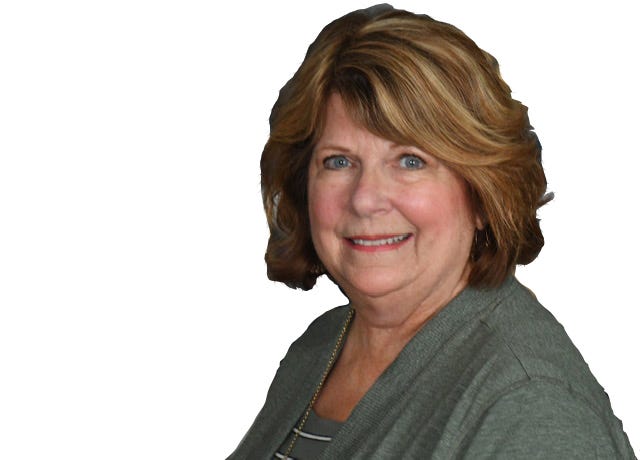Michigan treatment courts focus on rehabilitation, not retribution
 Karen Bouffard
Karen BouffardEfforts to reduce incarceration by providing treatment to offenders have been underway in Michigan for a quarter century.
Michigan has 188 treatment courts, sometimes called problem-solving courts, that are designed for veterans or offenders with drug, alcohol or mental health problems. Substance abuse is common among a majority of the mentally ill, experts said.

There are also juvenile treatment courts, and Family Dependency Treatment Courts for parents in danger of losing their kids. Kalamazoo County Circuit founded Michigan's first drug court in 1993.
At the 23rd District Court in Taylor, 75% of offenders with alcohol problems and 60% of those with drug problems graduate from Judge Geno Salomone's Substance Abuse Court.
See the full "Healing Justice" report | About this project
Studies have found that drug courts can result in more than $2 in direct savings to the criminal justice system for every dollar invested, or as much as $12 per dollar invested when benefits such as improved child welfare and reduced victimization are factored in, according to the Drug Court Judicial Benchbook published by the National Drug Court Institute.
Treatment courts are for offenders who are "high-risk, high-need," Salomone said. They usually have a history of prior offenses, and traditional probation hasn't worked for them.
"You come into our court, we’re going to get you treatment, you’ll be assessed to determine what type of treatment’s available, you will see a probation officer immediately," he said.

While offenders traditionally see a probation officer once a month, offenders in Salomone's treatment court may see their probation officer weekly.
"You will see the judge every other week," he added. "Before, the only time I would see you is if you violate; now I’m going to see you every two weeks."
It's a two-year program with high expectations. A treatment team that includes the judge, prosecutor, probation officer and others meets weekly to discuss participants' progress. About 20 participants per week see Salomone in court for a status review.
Participants are required to improve their education and get a job. They're tested for drugs and alcohol four or five times a week. If they can't initially afford to pay for the testing, the court covers the cost with state and federal grant money.
"Many times when you come into the program, you’re an in-patient, you don’t have a job, so paying is going to be quite difficult for you — and then you pick up employment and you can start paying," Salomone said. "We’re patient about that."
Salomone is tolerant when it comes to sobriety, at least initially.
More:Michigan prison takes a gentler tack with mentally ill
More:States put Norway-style prison reforms to work in U.S.
"Many judges were raised with the philosophy that a person relapses, therefore they must go to jail, and that’s not what happens in treatment court," he said. "If you’re in treatment court and you relapse, you might go to jail — but if you’ve only been clean a week, this is what alcoholics and addicts do.
"In treatment court, they’ll go back into treatment. It’s not automatic jail time, (although) most of the people who come into our program could easily qualify for 60 to 90 days in jail."
Salomone, along with other Michigan judges, is a participant in the Regional Judicial Opioid Initiative, an eight-state consortium formed three years ago to explore how the judiciary could stem the rise of overdose deaths. Michigan's delegation is led by state Supreme Court Chief Justice Bridget McCormack.

"The number of overdose deaths is stunning, and we judges, especially the trial court judges whom the Michigan Supreme Court supports, are on the front lines of what to do about this crisis," McCormack told The Detroit News.
"We’re seeing these people in our courtrooms, and we have the opportunity to save lives."
Incarcerating the wrong people ensures they "become more likely to engage in criminal behavior," Salomone said.
Wayne County has mental health courts both for adult and juvenile offenders, though they are not available to defendants charged with serious crimes such as murder, said Wayne County Prosecutor Kym Worthy.
Between 2005 and 2012, Wayne County also had programs for offenders who were not yet charged with a crime. The purpose was to divert them away from the formal criminal justice system, often into mental health or substance abuse treatment. The programs ended in 2012 due to a lack of funding, Worthy said.
"At one time, we had 11 or more pre-charge programs, that we called diversionary programs or 'change-the-culture programs,'" Worthy said. "The funding came from the state.
"We lost our funding in 2012, (and) we’ve tried to get it back. We went to Lansing, and the problem is most grants (are) for law enforcement are for sheriffs. We don’t have grants for prosecutors for this type of thing."
“Healing Justice” is a Detroit News project made possible through a fellowship with the Association of Health Care Journalists funded by the Commonwealth Fund, a nonprofit foundation focused on health.
kbouffard@detroitnews.com
Twitter: @kbouffardDN
NEXT ARTICLE: North Dakota, Oregon offer Michigan examples of how to create more effective prisons